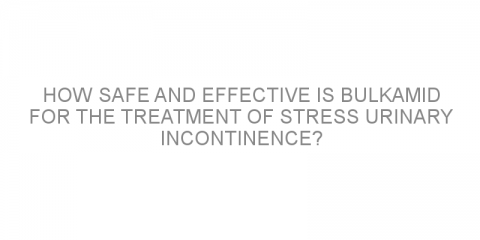In a nutshell This study assessed the effectiveness and safety of geptanolimab (GB226) in relapsed/refractory (r/r) peripheral T cell lymphoma (PTCL). The authors concluded that geptanolimab showed promising activity and manageable safety in these patients. Some background Peripheral T cell lymphoma (PTCL) is a rare subtype of non-Hodgkin...
Read MoreCan SOX and mFOLFOX6 chemotherapies be given without radiotherapy before surgery for advanced rectal cancer?
In a nutshell This study evaluated the safety and effectiveness of two chemotherapy regimens (SOX and mFOLFOX6) before surgery for rectal cancer (RC) without radiotherapy. The study found that both regimens were safe and effective in these patients. Some background RC is commonly treated with surgery to remove the tumor. Patients with...
Read MoreCan anlotinib be used for unresponsive advanced non-small cell lung cancer?
In a nutshell This article looked at the effectiveness and safety of anlotinib (AL3818) for non-responsive advanced non-small cell lung cancer (NSCLC). The authors found that anlotinib was an effective third-line or later line therapy for patients with unresponsive advanced NSCLC. Some background NSCLC accounts for 85% of lung cancers found...
Read MoreHow safe and effective is Bulkamid for the treatment of stress urinary incontinence?
In a nutshell This study aimed to investigate if Bulkamid was safe and effective in the long-term for the treatment of stress urinary incontinency and mixed urinary incontinence. The results suggest that Bulkamid was safe and effective over a 7 year period. Some background Stress urinary incontinency (SUI) is the involuntary leakage of urine due...
Read MoreReviewing treatments for genitourinary symptoms in breast cancer survivors
In a nutshell This review aims to discuss the current treatment options available for genitourinary (GU) symptoms related to menopause in breast cancer (BC) survivors. Some background Vulvovaginal atrophy (VVA; thinning, trying, and inflammation of the lining of the vagina) is one of the side effects of hormonal treatments given to patients with...
Read MoreLong-term outcomes of idelalisib treatment for patients with relapsed painless lymphoma
In a nutshell This study reported the long-term effectiveness and safety outcomes of treatment with idelalisib (Zydelig) after a longer follow-up of patients with indolent (painless) non-Hodgkin lymphoma. The data showed that idelalisib treatment improved the overall survival of these patients in the long-term. Some background Non-Hodgkin...
Read MoreSafety and effectiveness of different therapies after surgery for patients with resected melanoma.
In a nutshell This study compared how safe and effective are different therapies after surgery in patients with melanoma. This study showed that nivolumab had the best outcome for patients with melanoma following surgery. Some background Melanoma is a type of skin cancer. First line therapy for melanoma involves surgery to...
Read MoreIs radiosurgery in combination with other cancer therapies safe in patients with brain metastasis?
In a nutshell The aim of this study was to evaluate the safety of giving stereotactic radiosurgery (SRS) at the same time as other cancer treatments for patients who have brain metastasis. The study found that SRS given in combination with chemotherapy, immunotherapy, or targeted therapy was safe with low levels of side effects. Some background The...
Read MoreIs radiosurgery in combination with other cancer therapies safe in patients with brain metastasis?
In a nutshell The aim of this study was to evaluate the safety of giving stereotactic radiosurgery (SRS) at the same time as other cancer treatments for patients who have brain metastasis. The study found that SRS given in combination with chemotherapy, immunotherapy, or targeted therapy was safe with low levels of side effects. Some background The...
Read MoreIs radiosurgery in combination with other cancer therapies safe in patients with brain metastasis?
In a nutshell The aim of this study was to evaluate the safety of giving stereotactic radiosurgery (SRS) at the same time as other cancer treatments for patients who have brain metastasis. The study found that SRS given in combination with chemotherapy, immunotherapy, or targeted therapy was safe with low levels of side effects. Some background The...
Read MoreIs radiosurgery in combination with other cancer therapies safe in patients with brain metastasis?
In a nutshell The aim of this study was to evaluate the safety of giving stereotactic radiosurgery (SRS) at the same time as other cancer treatments for patients who have brain metastasis. The study found that SRS given in combination with chemotherapy, immunotherapy, or targeted therapy was safe with low levels of side effects. Some background The...
Read MoreIs radiosurgery in combination with other cancer therapies safe in patients with brain metastasis?
In a nutshell The aim of this study was to evaluate the safety of giving stereotactic radiosurgery (SRS) at the same time as other cancer treatments for patients who have brain metastasis. The study found that SRS given in combination with chemotherapy, immunotherapy, or targeted therapy was safe with low levels of side effects. Some background...
Read More














